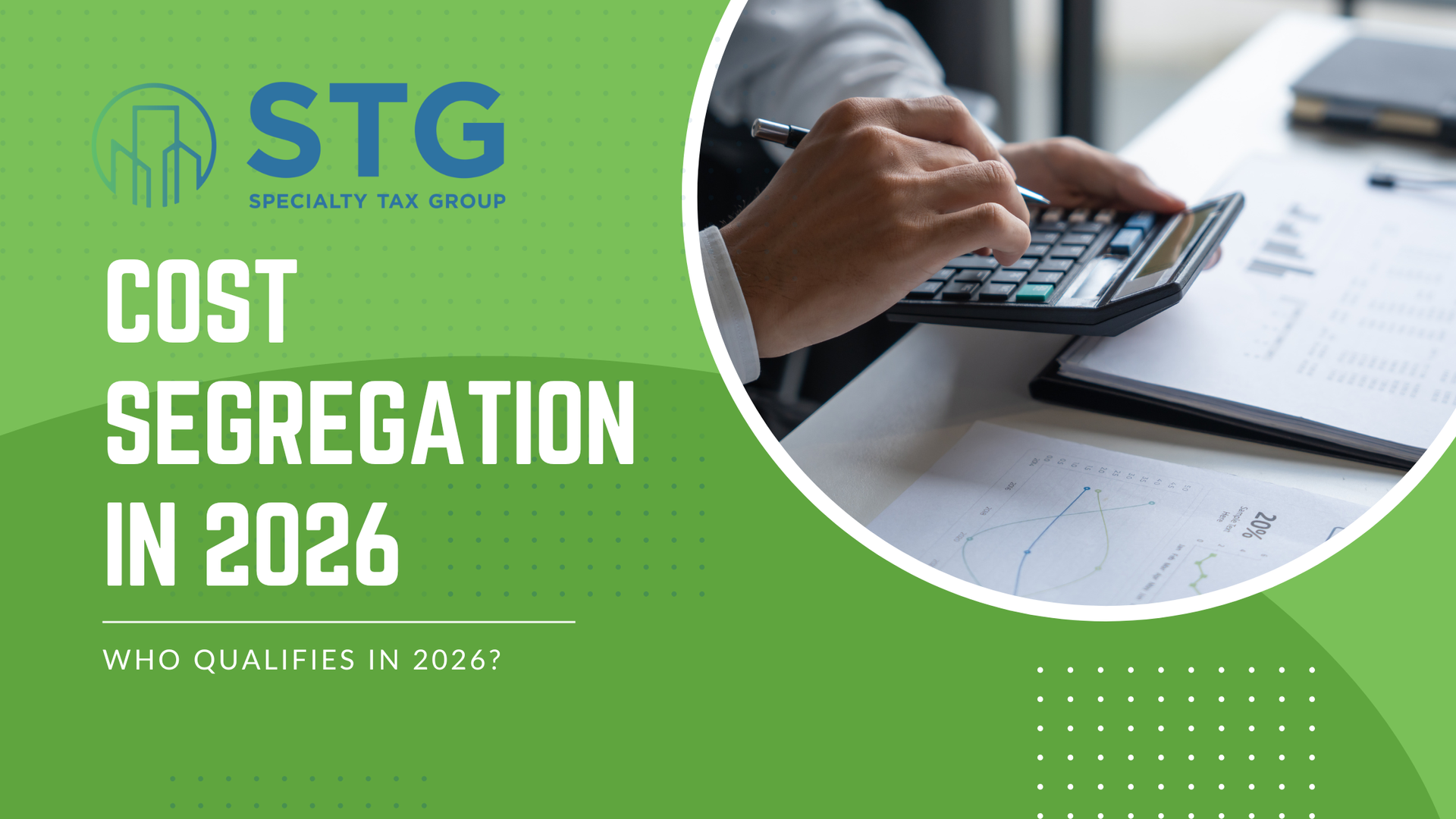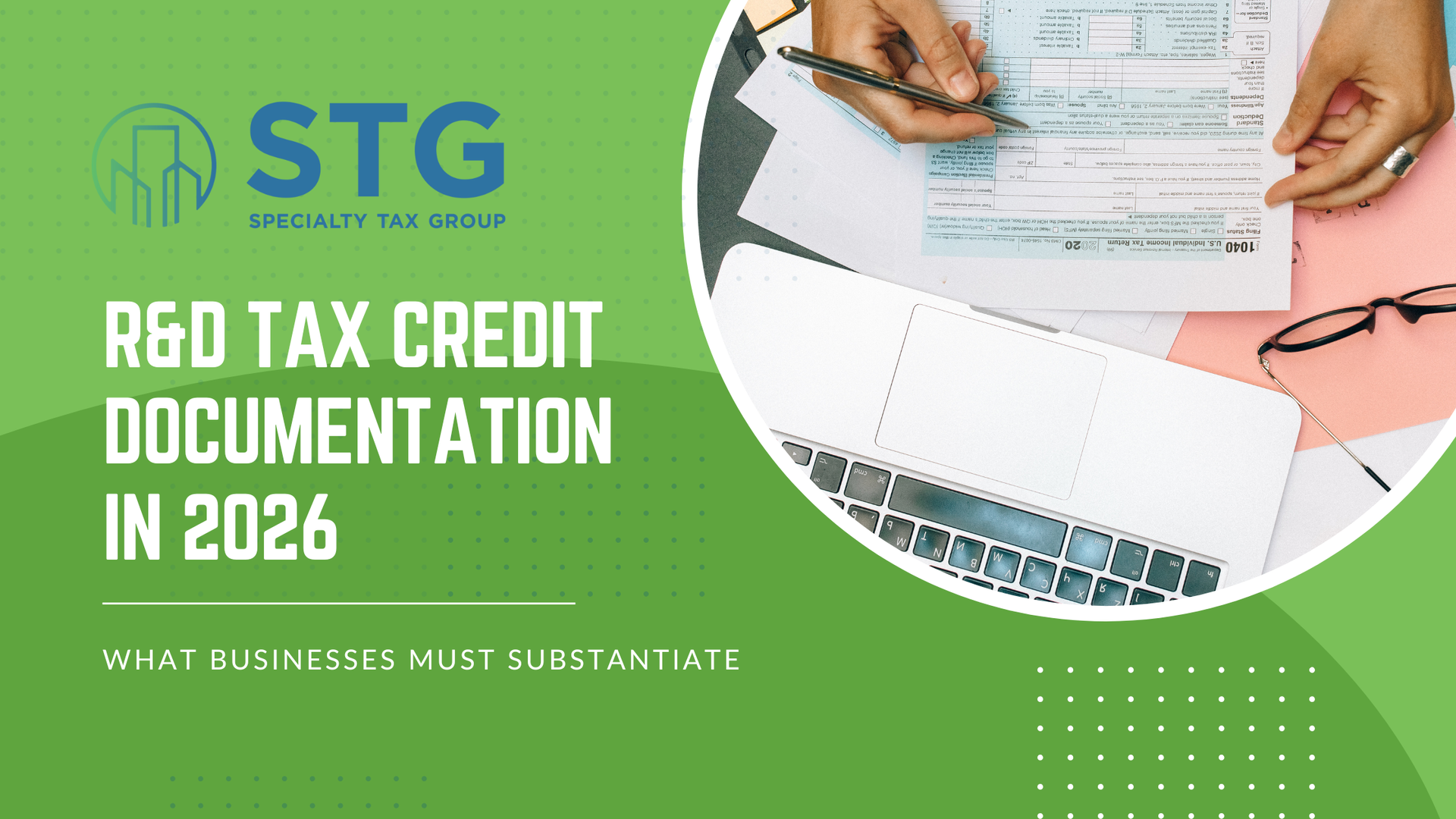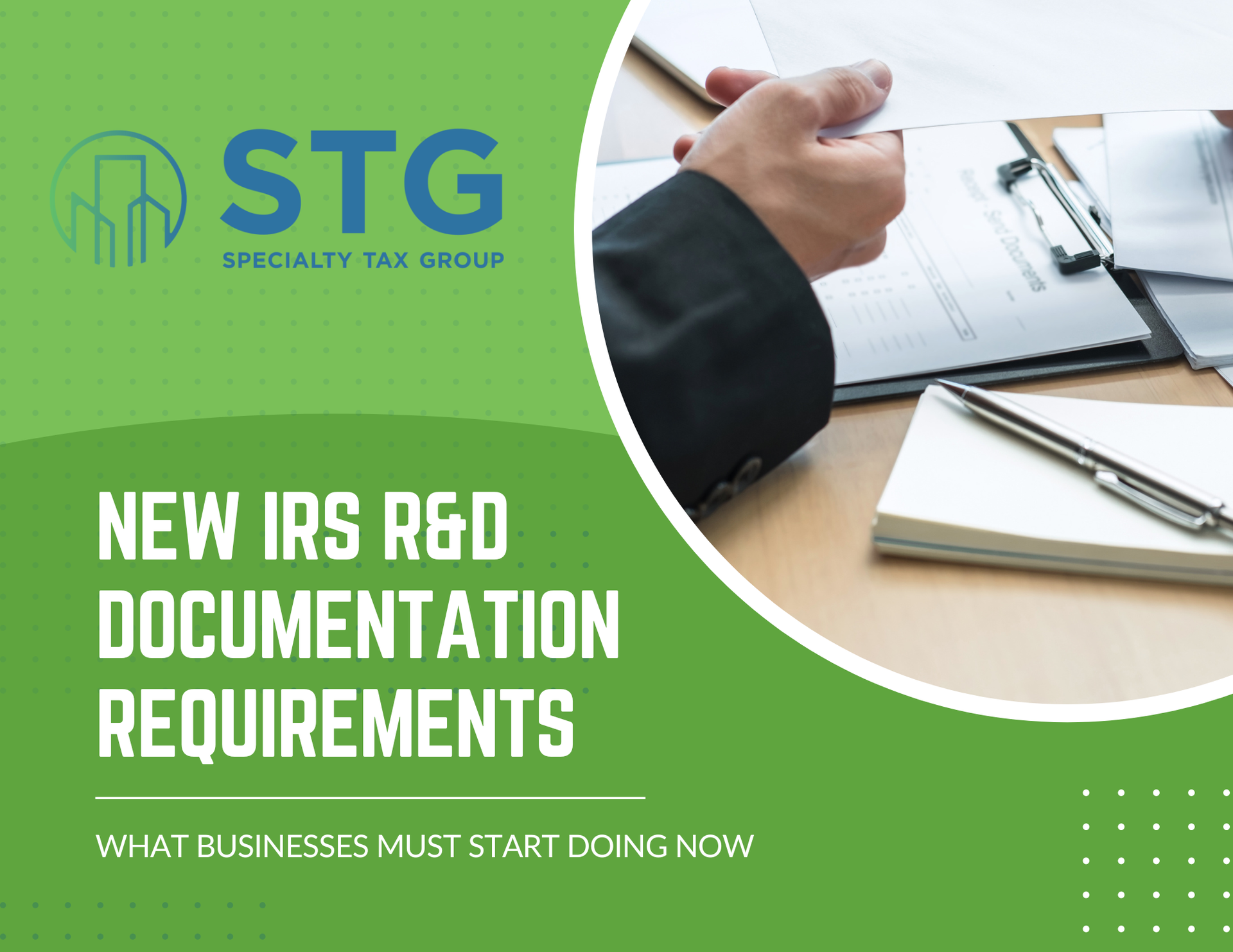SPECIALTY TAX GROUP
Innovative Solutions to Maximize Tax Credits, Incentives, and Deductions
SPECIALTY TAX GROUP
Simple & Powerful Benefits
Services
We focus on Cost Segregation Studies, Energy Efficiency Incentives, Comprehensive Fixed Asset Reviews, Research & Development Tax Credits, Like-Kind Exchanges, Accounting Methods, Tangible Property & Repair Reviews, Georgia Tax Credits, Tennessee Tax Credits, Clean Energy Investment Tax Credits, and South Carolina Tax Credits. With the knowledge of engineers, CPAs, HERS raters, and LEED Professionals, STG has the ability to deliver tax strategies that are tailored for each client.
Cost Segregation Services
Cost Segregation is a valuable strategy to increase cash flow and reduce income taxes for commercial property owners.
Research & Development Tax Credit
A Federal Tax Credit that incentivizes US-based taxpayers for increasing investment in research activities.
179D Energy Efficient Commercial Building Deduction
Here we look for 179D tax credits relating to developers, owners, architects, contractors and designers of energy efficient homes and buildings.
Comprehensive Fixed Asset Reviews
A Comprehensive Fixed Asset Review reviews a taxpayer’s entire depreciation schedule to ensure the treatment of all assets.
Tangible Property & Repair Reviews
For our most capital intensive clients where we deep dive into the entire depreciation’s schedule.
Accounting Methods
A change in accounting method includes any change in the taxpayer’s overall method of accounting, which often times results in improved cash flow.
Georgia Tax Credits
Statutory programs that allow taxpayers to claim tax credits for normal business activities such as training their employees on technology and equipment, adding jobs, and investing in manufacturing or telecommunications equipment.
Tennessee Tax Credits
Statutory programs that allow taxpayers to claim franchise and excise tax credits for normal business activities such as adding jobs and investing in industrial machinery.
South Carolina Tax Credits
Statutory program that allows qualifying businesses to claim tax credits for allows qualifying businesses to claim tax credits for creating and maintaining new jobs in South Carolina, with credit values ranging from 1,500 to 25,000 per job based on county tier and business type, available for a five-year period.
Testimonials
What Our Clients Say
Learn More
Comprehensive Fixed Asset Reviews
A Comprehensive Fixed Asset Review is a powerful tax planning strategy that evaluates a taxpayer’s entire depreciation schedule to find a multitude of opportunities to accelerate deductions and vastly improve cash flow. While this strategy includes reviewing assets for missed cost segregation studies, for taxpayers with numerous assets, this is a vastly superior planning idea since it reviews all assets for a multitude of opportunities.
Get Started Today
Tell Us About Your Project
Our Recent Posts
















